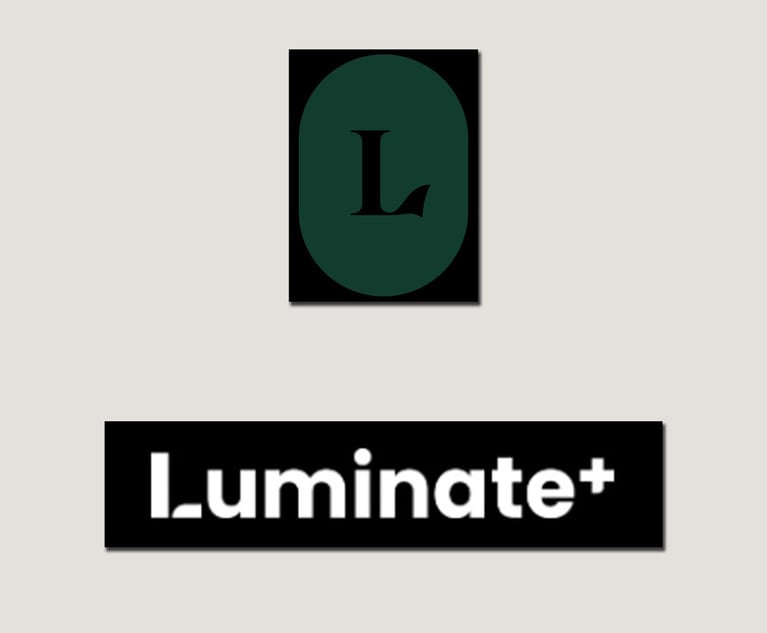US Businesses Testing Trump's Trade Restrictions
So far this week, FedEx has announced it followed in Huawei's footsteps and sued the Commerce Department, and The New York Times reported that major U.S. semiconductor companies, including Intel and Micron Technology, had resumed business with Huawei.
June 26, 2019 at 03:15 PM
4 minute read
 Shipping containers. Photo: Avigator Thailand/Shutterstock.com
Shipping containers. Photo: Avigator Thailand/Shutterstock.com
The Trump administration's aggressive trade policies, including escalating tariffs on China and a ban on Chinese telecom giant Huawei Technologies Co. Ltd., stirred up the international trade waters, leaving U.S. businesses searching for answers in the murkiness.
But the sediment is settling and some major companies are beginning to push back against trade restrictions.
So far this week, FedEx has announced it followed in Huawei's footsteps and sued the Commerce Department, and The New York Times reported that major U.S. semiconductor companies, including Intel Corp. and Micron Technology Inc., had resumed business with Huawei.
FedEx and its attorneys at Baker McKenzie argue that trade restrictions under the Export Administration Regulations constitute a due process violation as they “unreasonably hold common carriers strictly liable for shipments that may violate the EAR without requiring evidence that the carriers had knowledge of any violations.
“This puts an impossible burden on a common carrier such as FedEx to know the origin and technological make-up of contents of all the shipments it handles and whether they comply with the EAR,” FedEx added.
The day after FedEx sued the federal government, the Times, citing anonymous sources, reported that U.S. chipmakers had resumed doing business with Huawei after having “found ways to avoid labeling goods as American-made” and were “selling millions of dollars of products to Huawei.”
Intel did not respond to a request for comment. Micron declined to discuss the report, but a company spokesman referenced a statement from Semiconductor Industry Association president and CEO John Neuffer, who said “it is now clear some items may be supplied to Huawei consistent with the Entity List and applicable regulations.”
Neuffer added, “Each company is impacted differently based on their specific products and supply chains, and each company must evaluate how best to conduct its business and remain in compliance.”
The companies in question started shipping certain tech products to Huawei based on an analysis of the list of items subject to EAR restrictions, said Kevin Wolf, a partner in the international trade and compliance practice at Akin Gump Strauss Hauer & Feld in Washington, D.C., and former Commerce Department official, in an interview Wednesday.
“If you have a foreign-made item that does not contain more than 25% controlled content, then it's not subject to the regulations,” he said. “A lot of semiconductors are not U.S. origin and the law doesn't apply to foreign-made items that don't contain U.S. origin content.”
Wolf added the “companies that stopped [shipping products to Huawei] did the right thing because the penalties for getting this wrong are quite severe. It's very normal for companies to stop shipments and do their analysis of what is legal and what is not so they don't inadvertently make a mistake.”
Read More:
Baker McKenzie Tapped as FedEx Sues Commerce Department Over Huawei Blacklist
Businesses Showing Discontent With Trump's Trade Policies
Huawei's Chief Legal Officer Takes Center Stage in Conflict With US
This content has been archived. It is available through our partners, LexisNexis® and Bloomberg Law.
To view this content, please continue to their sites.
Not a Lexis Subscriber?
Subscribe Now
Not a Bloomberg Law Subscriber?
Subscribe Now
NOT FOR REPRINT
© 2025 ALM Global, LLC, All Rights Reserved. Request academic re-use from www.copyright.com. All other uses, submit a request to [email protected]. For more information visit Asset & Logo Licensing.
You Might Like
View All
Global Software Firm Trying to Jump-Start Growth Hands CLO Post to 3-Time Legal Chief

In-House Legal Network The L Suite Acquires Legal E-Learning Platform Luminate+

Up-and-Comer Scores First Legal Chief Post With Baltimore Orioles, the Team He Cheered for as Kid

Ad Agency Legal Chief Scores $12M Golden Parachute in $13B Sale to Rival
3 minute readTrending Stories
- 15th Circuit Considers Challenge to Louisiana's Ten Commandments Law
- 2Crocs Accused of Padding Revenue With Channel-Stuffing HEYDUDE Shoes
- 3E-discovery Practitioners Are Racing to Adapt to Social Media’s Evolving Landscape
- 4The Law Firm Disrupted: For Office Policies, Big Law Has Its Ear to the Market, Not to Trump
- 5FTC Finalizes Child Online Privacy Rule Updates, But Ferguson Eyes Further Changes
Who Got The Work
J. Brugh Lower of Gibbons has entered an appearance for industrial equipment supplier Devco Corporation in a pending trademark infringement lawsuit. The suit, accusing the defendant of selling knock-off Graco products, was filed Dec. 18 in New Jersey District Court by Rivkin Radler on behalf of Graco Inc. and Graco Minnesota. The case, assigned to U.S. District Judge Zahid N. Quraishi, is 3:24-cv-11294, Graco Inc. et al v. Devco Corporation.
Who Got The Work
Rebecca Maller-Stein and Kent A. Yalowitz of Arnold & Porter Kaye Scholer have entered their appearances for Hanaco Venture Capital and its executives, Lior Prosor and David Frankel, in a pending securities lawsuit. The action, filed on Dec. 24 in New York Southern District Court by Zell, Aron & Co. on behalf of Goldeneye Advisors, accuses the defendants of negligently and fraudulently managing the plaintiff's $1 million investment. The case, assigned to U.S. District Judge Vernon S. Broderick, is 1:24-cv-09918, Goldeneye Advisors, LLC v. Hanaco Venture Capital, Ltd. et al.
Who Got The Work
Attorneys from A&O Shearman has stepped in as defense counsel for Toronto-Dominion Bank and other defendants in a pending securities class action. The suit, filed Dec. 11 in New York Southern District Court by Bleichmar Fonti & Auld, accuses the defendants of concealing the bank's 'pervasive' deficiencies in regards to its compliance with the Bank Secrecy Act and the quality of its anti-money laundering controls. The case, assigned to U.S. District Judge Arun Subramanian, is 1:24-cv-09445, Gonzalez v. The Toronto-Dominion Bank et al.
Who Got The Work
Crown Castle International, a Pennsylvania company providing shared communications infrastructure, has turned to Luke D. Wolf of Gordon Rees Scully Mansukhani to fend off a pending breach-of-contract lawsuit. The court action, filed Nov. 25 in Michigan Eastern District Court by Hooper Hathaway PC on behalf of The Town Residences LLC, accuses Crown Castle of failing to transfer approximately $30,000 in utility payments from T-Mobile in breach of a roof-top lease and assignment agreement. The case, assigned to U.S. District Judge Susan K. Declercq, is 2:24-cv-13131, The Town Residences LLC v. T-Mobile US, Inc. et al.
Who Got The Work
Wilfred P. Coronato and Daniel M. Schwartz of McCarter & English have stepped in as defense counsel to Electrolux Home Products Inc. in a pending product liability lawsuit. The court action, filed Nov. 26 in New York Eastern District Court by Poulos Lopiccolo PC and Nagel Rice LLP on behalf of David Stern, alleges that the defendant's refrigerators’ drawers and shelving repeatedly break and fall apart within months after purchase. The case, assigned to U.S. District Judge Joan M. Azrack, is 2:24-cv-08204, Stern v. Electrolux Home Products, Inc.
Featured Firms
Law Offices of Gary Martin Hays & Associates, P.C.
(470) 294-1674
Law Offices of Mark E. Salomone
(857) 444-6468
Smith & Hassler
(713) 739-1250






